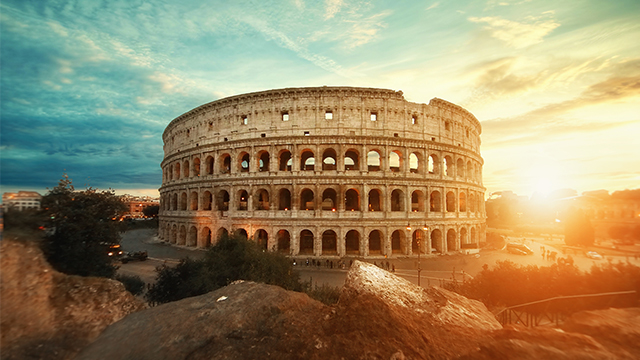5 Reasons to Know Your Greek and Roman Theatre
Written by Ashleigh Gardner
May 18, 2017
For high school seniors who have graduated, it’s never too late to get crackin’ on reading Greek and Roman plays to prepare you for college classes. However, for juniors who still have another year to go, it’s essential that you familiarize yourself with the plays that created the foundation of modern theatre. Below are five reasons to pick up a Greek or Roman play today to get to know your Greek and Roman theatre.

1. The first actor.
If you’re a high school thespian, you’re probably familiar with the story of Thespis. If you have no idea who Thespis is, it’s time for a history lesson! The cult of Dionysus staged exciting and elaborate songs and dances telling the stories of Greek myth in choral form. One priest of Dionysus, Thespis, stepped from the chorus and became the first actor, engaging in a dialogue with the chorus. (He was also the first winner of a theatrical award in the first competition for writing tragedy in 534 BC.)
2. The foundation for comedy and drama today.
Aeschylus, Euripides, and Sophocles make up the trio of Greek writers who gave us such important works as the Oedipus trilogy (Oedipus Rex, Oedipus at Colonus, and Antigone), Lysistrata, The Trojan Women, Medea, and Agamemnon. Following Thespis’s move, Aeschylus, writer of over 80 plays, introduced a second actor, creating drama between two characters. Then, Sophocles added a third actor, one-upping Aeschylus. The works of Aeschylus tend to deal more with public social and governmental themes while the works of Sophocles concentrate more on personal struggles and relationships. Because play competitions in Greece were so popular, playwrights wrote tons of quality plays to win awards, and so, today, we have stellar examples of drama and comedy. In addition, Greek plays heavily influence the content and style of Roman works, so much so that there is not an original work of Roman theatre that does not borrow from a Greek play. (But Thyestes by Roman playwright Seneca the Younger is a pretty cool play. Check it out.)
3. Deep, complicated, and interesting characters.
If you’re not familiar with the juicy characters Greek and Roman theatre offer, you are so totally missing out. Get your hands on the characters of Lysistrata (the woman who commands an army of other women who are fed up with war), or Antigone (a girl who must dare to bury her dead brother when it’s been forbidden by her uncle, the king), or Mercury (the god who has to disguise himself as a servant to keep tabs on his dad, Jupiter), or Atreus (the evil, angry, and vindictive man who cooks his nephews in a stew and serves it to his brother who stole the throne — and his wife.)
4. Concepts that transcend time.
It’s not all about togas and sandals. Greek and Roman theatre is a lot like Shakespeare when it comes to updating the staging and time period to make the story more accessible to modern audiences. We may not be totally familiar with the government complications of ancient Greece and Rome, but social issues and personal struggles transcend time. Lysistrata has been staged with references to World War II, Vietnam, and the War in Iraq. And Oedipus Rex has been staged as a modern drama with contemporary clothing.
5. Audition with a classical piece.
As a bonus, if you’re familiar with at least two pieces of Greek and Roman theatre (a comedy and a tragedy), you’ll be better prepared for those college auditions coming up. A lot of colleges and universities require one classical piece as part of your audition package, so what are you waiting for? Check out our list of Greek and Roman monologues here!
Interested in reading more plays? Check out our other features below!
- 25 Plays all High School Seniors Should Read (Before They Graduate)
- 10 Contemporary LGBT Playwrights You Should Know
- 10 Contemporary Native American Playwrights You Should Know
- 10 Contemporary Playwrights of Color You Should Know
- 10 Asian American Playwrights You Should Know
- 10 Latinx, Hispanic, and Chicano/a Playwrights You Should Know
- 10 Eighteenth-Century Female Playwrights You Should Know
- 10 Nineteenth-Century Female Playwrights You Should Know
- 10 Classic Russian Playwrights You Should Know
- 12 Elizabethan and Jacobean Playwrights You Should Know
- 7 Greek and Roman Playwrights You Should Know
- 13 Classic American Playwrights You Should Know
- Early 20th Century Broadway Composers and Lyricists You Should Know
